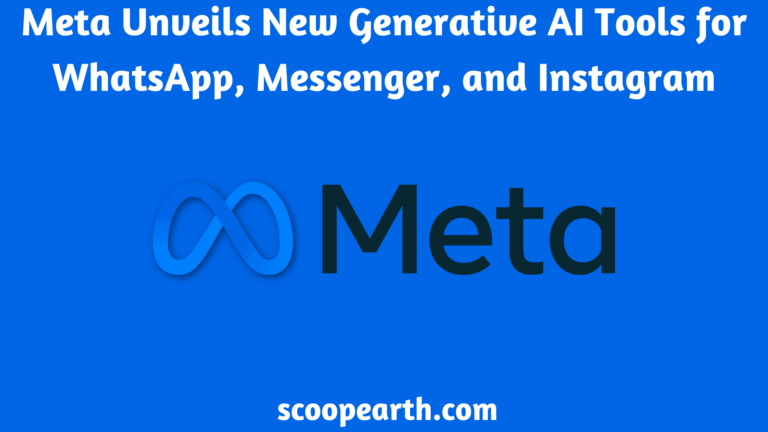Monday, 12 June 2023, Bengaluru, India
This week, Meta presented its work on new generative AI technologies for both its internal use and those of its consumer applications, like Instagram, WhatsApp, and Messenger. At an all-hands meeting, Meta CEO Mark Zuckerberg unveiled several artificial intelligence (AI) technologies that are in various stages of development. These technologies include internal-only products like an AI productivity assistant and an experimental interface for interacting with AI agents, both of which are powered by Meta’s large language model LLaMA. AI chatbots for Messenger and WhatsApp, AI stickers, and other capabilities that would enable photo editing in Instagram Stories are some of these technological advancements.
Additionally, the business disclosed plans to have an internal AI hackathon in July with a generative AI focus. This event may produce new AI products that eventually reach Meta’s users.
The announcement comes after Zuckerberg said during Meta’s Q1 earnings that the company was investigating how to incorporate new AI technology into products that would reach billions of people worldwide.
As demand for AI chatbots has soared in recent months, this is one of the consumer market segments that has been drawing more attention and funding. Character is a top app in this field. Over 1.7 million additional installs of AI, created by researchers who worked on the development of LaMDA (Language Model for Dialogue Applications) while at Google, were made in less than a week, the company claimed. $150 million in Series A capital, led by Andreessen Horowitz (a16z), is supporting the business. However, the app faces competition from a variety of different chatbot apps that offer comparable functionality on the App Store, from those that let users create their own AI characters, like Replika, to others that have a specific function, such as writing assistants or personal assistants.
In the beginning, Meta plans to make its AI agents accessible on WhatsApp and Messenger, according to Zuckerberg, but it sees a bigger future for such technologies that may see them extending throughout its family of services and eventually to smart eyewear. Customers are supposed to wear a pair of smart glasses, similar to Meta’s Ray-Ban Stories, to speak verbally with the agents in that situation.
Additionally, Meta disclosed during the meeting that it was testing artificial intelligence (AI) that would let users interact with a text prompt to edit their photographs for publishing in Instagram Stories. Additionally, this follows a spike in consumer interest in AI photo editors, including the prior year’s viral AI avatar movement that sent apps like Lensa AI to the top of the App Store. Apps like Wonder, which convert words into AI photos, are likewise well-liked throughout the App Store.
Because of Meta’s ad-supported business, these products would become free for users as a result of its entry into this market. To explore all the capabilities, the majority of competing apps on the App Store only give a small number of AI modifications for free.
Developers can use Metamate to assist them uncover faults in products they are testing, while others might use it to rearrange appointments to free up space in their schedule.
[Source: Techcrunch.com]










